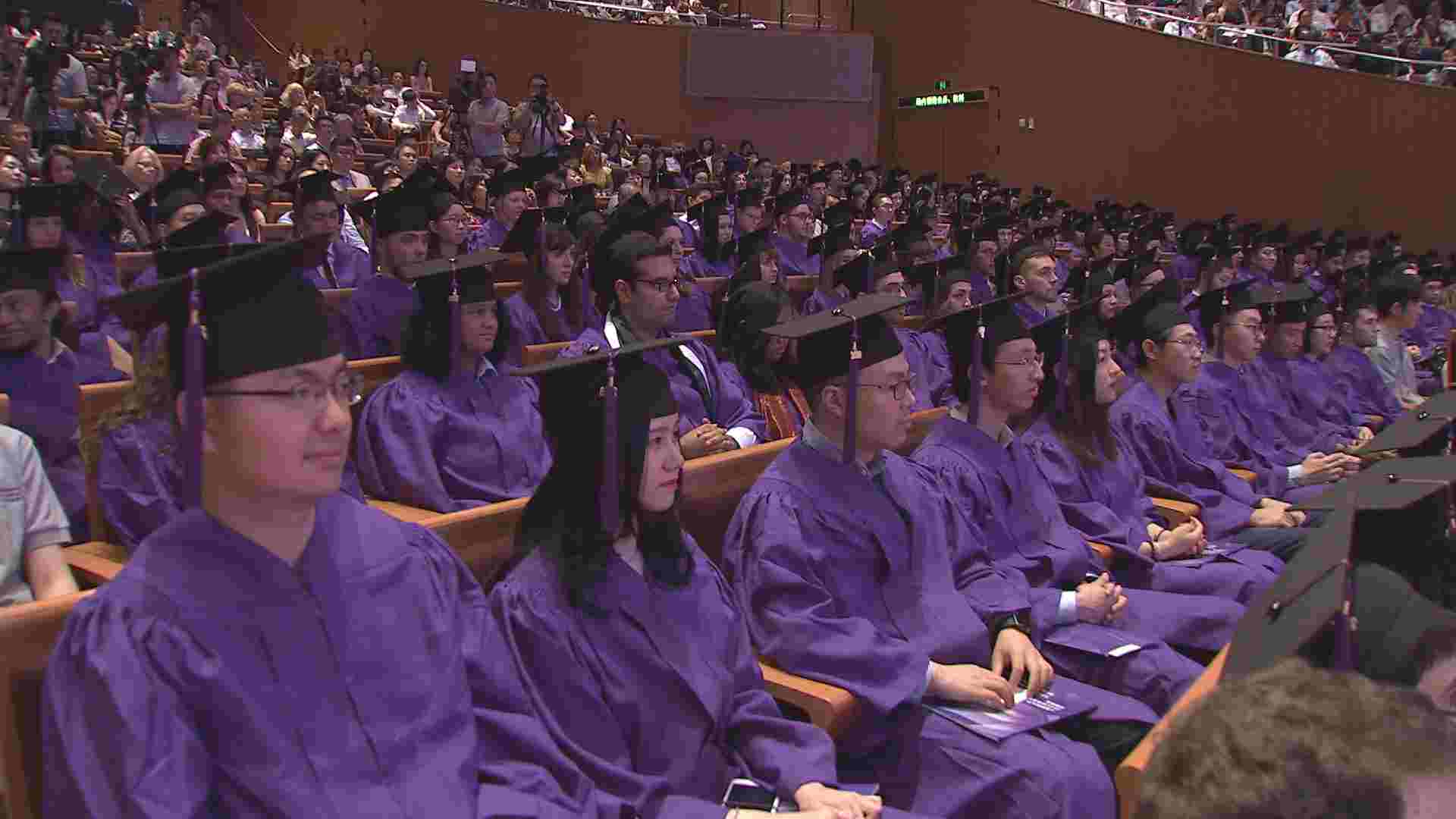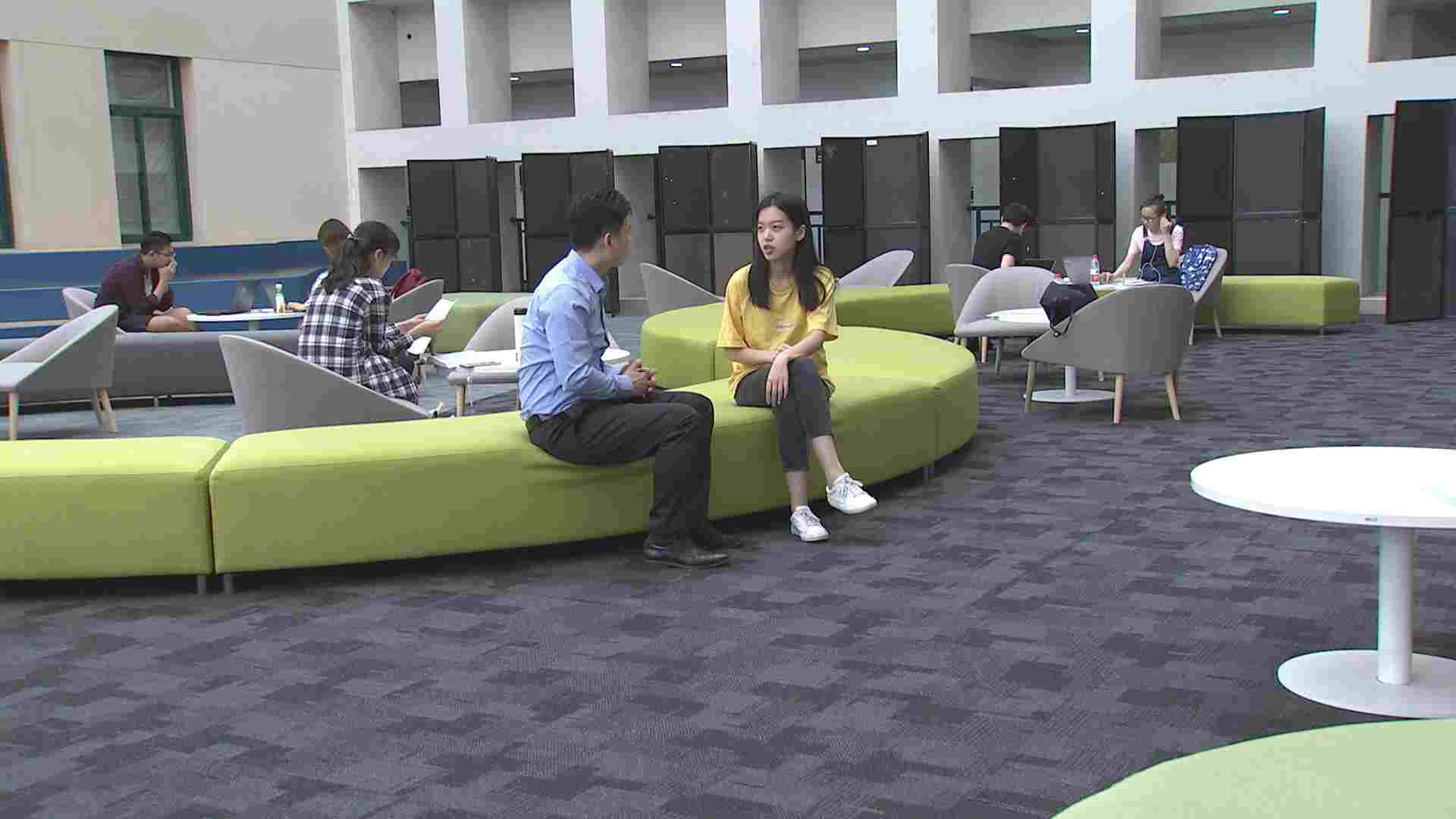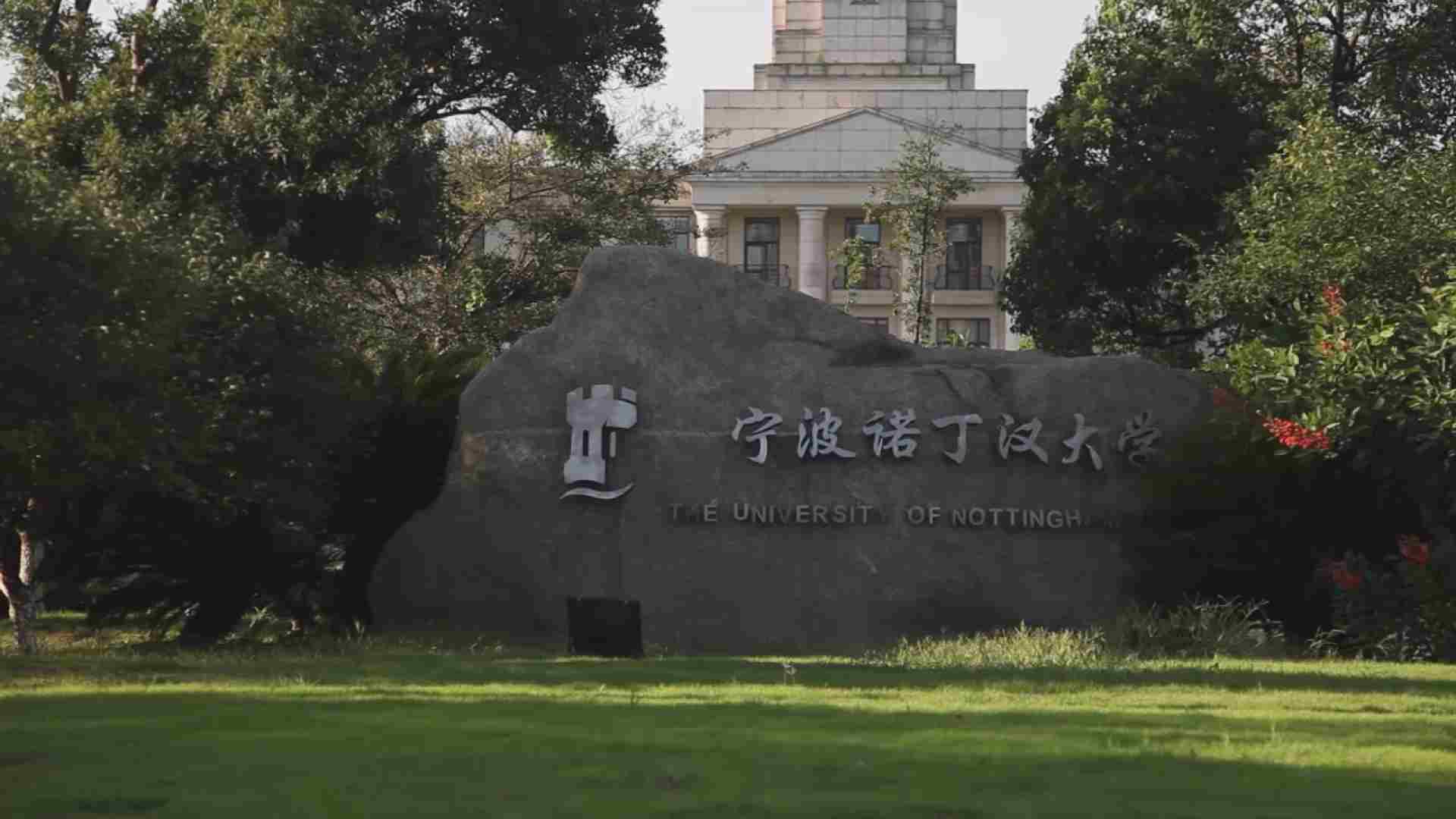
Culture
14:08, 26-May-2018
More foreign collaborations in China’s education sector to be expected in the future
By Wu Lei, Chen Weikui
03:19

China says it will continue its opening-up policy, and one of the key sectors for this is the education market. In the past few years, a growing number of collaborative universities have set up campuses across the country, offering students from China and abroad a distinctive and international educational environment.
The class of 2018 is celebrating their commencement after completing their studies at New York University Shanghai.

NYU Shanghai is the first Sino-US joint research university in China. /CGTN Photo
NYU Shanghai is the first Sino-US joint research university in China. /CGTN Photo
Graduate Zoe Jordan, who majored in Global China Study, said a global institution like NYU Shanghai is the best place for her to study Chinese history, culture and politics.
She told CGTN that she thinks a lot of other people are also interested in studying in China, noting that this is the best place to do that, "because you can learn from your Chinese professors, you can learn from your international professors, so there is no better place to learn about China’s place in the world and how the world and China is interacting except for here."

Vice Chancellor Jeffrey Lehman says their aim is to pioneer innovative curricula and stimulate a culture of creativity. /CGTN Photo
Vice Chancellor Jeffrey Lehman says their aim is to pioneer innovative curricula and stimulate a culture of creativity. /CGTN Photo
Founded in 2012, NYU Shanghai is a unique partnership between New York University and East China Normal University.
Jeffrey Lehman, NYU Shanghai’s vice chancellor told CGTN that the phenomenon of Sino-foreign joint universities reflects the spirit of experimentation in China.
The thought is that in order for Chinese higher education to continue to develop and progress, it’s important to have experiments going on all over the country, Lehman argued.

Joint platforms offer a great international environment for Chinese students who need not go abroad. /CGTN Photo
Joint platforms offer a great international environment for Chinese students who need not go abroad. /CGTN Photo
Such projects between Chinese and foreign institutions are wide-ranging, from whole universities, down to departmental cooperation. Leng Jiaqi, a student of the University of Nottingham Ningbo China told CGTN that most of the teachers are from world-renowned educational institutions.

Back in 2004, the University of Nottingham Ningbo became the first Sino-foreign university in China. /CGTN Photo
Back in 2004, the University of Nottingham Ningbo became the first Sino-foreign university in China. /CGTN Photo
All of Leng's classes are taught in English, and she said it is very interesting to attend classes taught by highly qualified professors.
Today the university is home to a thriving international community of over 6,800 students.

Professor Chris Rudd says the joint education program is a long-term investment. /CGTN Photo
Professor Chris Rudd says the joint education program is a long-term investment. /CGTN Photo
Chris Rudd, provost of the University of Nottingham Ningbo China told CGTN that he thinks the big lessons for Nottingham’s experience is that it’s a long game, and the partners need on both sides to buy into that as a long-term investment.

There are roughly 2,600 Sino-foreign joint education institutions and projects across China. /CGTN Photo
There are roughly 2,600 Sino-foreign joint education institutions and projects across China. /CGTN Photo
With tens of thousands of students graduating each year, these joint education programs will bring more diversity into the system so that students get more choices in the kind of educational experience they want to have. And as China vows to continue to reform its educational system, greater cooperation in the field is expected.

SITEMAP
Copyright © 2018 CGTN. Beijing ICP prepared NO.16065310-3
Copyright © 2018 CGTN. Beijing ICP prepared NO.16065310-3